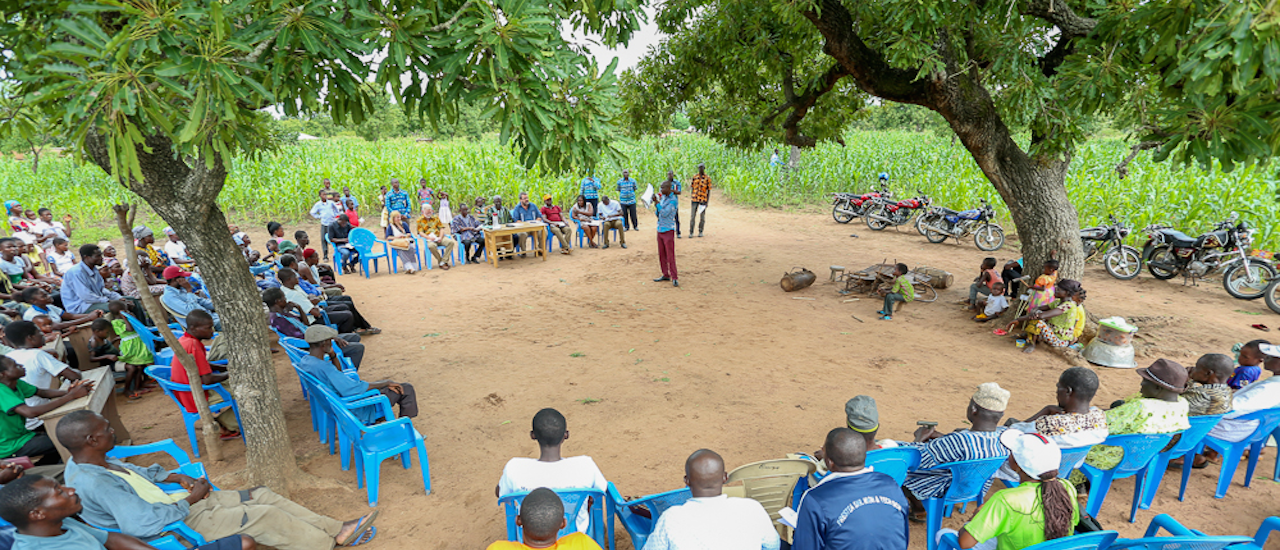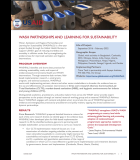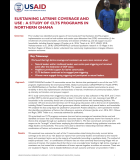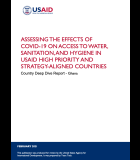In Ghana, 15 percent of the population has access to improved sanitation. This is progress, albeit limited since 1990 — when sanitation coverage reached only one in 25 Ghanaians. The country faces a long road ahead as it works to eliminate open defecation, one of the greatest public health challenges associated with inadequate sanitation coverage. Today, roughly one in five Ghanaians are estimated to engage in open defecation, which elevates transmission risk of diarrhea, intestinal infections, and other illnesses. But after enduring a series of cholera outbreaks during the past two years, the country is now tackling its sanitation challenges with renewed vigor, and intensifying efforts to scale-up sanitation improvements nationwide.
To support these sanitation improvement efforts, USAID has launched a five-year WASH for Health initiative. It works in coordination with local partners across the country to educate the public about the benefits of eliminating open defecation, fostering community involvement in identifying and implementing sustainable sanitation solutions, and promoting mutual accountability for maintaining sanitation-related behavior change.
Click here to read the full article in USAID's Global Waters magazine.






